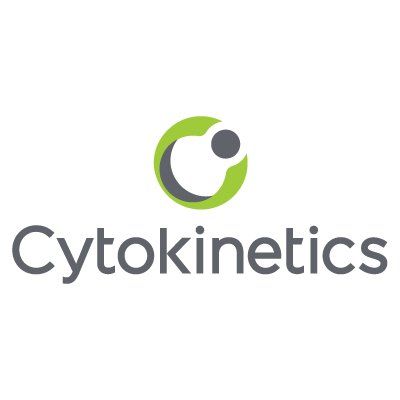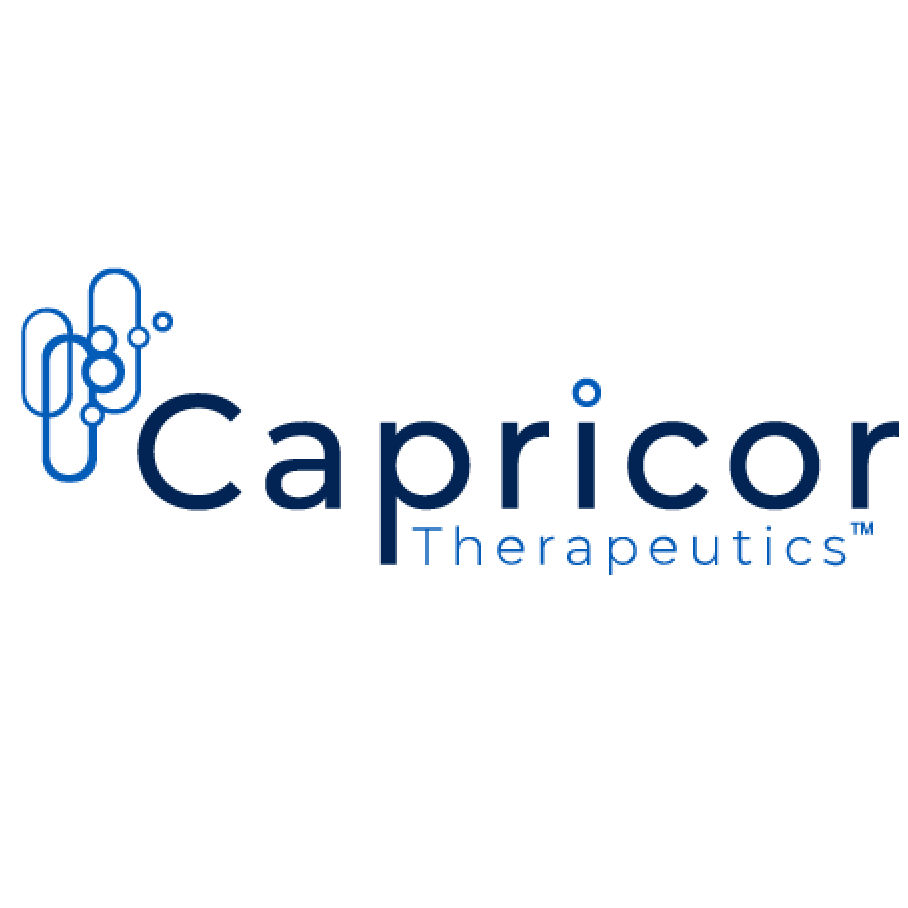Request Demo
Last update 08 May 2025
Ischemic cardiomyopathy
Last update 08 May 2025
Basic Info
Synonyms CARDIOMYOPATHY ISCHEMIC, Gen ischaemic myocard dysfunct, Gen ischemic myocard dysfunct + [14] |
Introduction- |
Related
14
Drugs associated with Ischemic cardiomyopathyTarget |
Mechanism Cardiac myosin stimulants |
Active Org. |
Originator Org. |
Active Indication |
Inactive Indication |
Drug Highest PhaseNDA/BLA |
First Approval Ctry. / Loc.- |
First Approval Date20 Jan 1800 |
Target- |
Mechanism Cell replacements |
Active Org. |
Originator Org. |
Active Indication |
Inactive Indication |
Drug Highest PhaseNDA/BLA |
First Approval Ctry. / Loc.- |
First Approval Date20 Jan 1800 |
Target |
Mechanism HMGB1 inhibitors |
Active Org. |
Originator Org. |
Active Indication |
Inactive Indication- |
Drug Highest PhasePhase 2 |
First Approval Ctry. / Loc.- |
First Approval Date20 Jan 1800 |
190
Clinical Trials associated with Ischemic cardiomyopathyChiCTR2500101200
Clinical Research on the Evaluation of the Efficacy and Safety of Mesenchymal Stem Cell Therapy for Vascular Aging
Start Date15 May 2025 |
Sponsor / Collaborator |
NCT06930092
RestoratIon of Myocardial Function by PeRcutaneous cOronary interVEntion in Patients With Ischemic CardioMyoPathy
To compare the effects of physiology- and imaging-guided PCI combined with optimal medical therapy (OMT) versus OMT alone on the recovery of left ventricular systolic function in patients with ischemic cardiomyopathy and multivessel coronary artery disease.
Start Date01 May 2025 |
Sponsor / Collaborator |
NCT06661876
Cardiac RadiothErapy For hEart faiLure
Preliminary data suggests that patients suffering from advanced refractory heart failure (HF) could benefit from single low dose whole heart external beam radiotherapy (EBRT).
Objective: To explore in our center the efficacy of administering a EBRT treatment of 5Gy to the whole heart in patients with advanced and refractory HF. The hypothesis is that 5Gy EBRT to the whole heart can improve the left ventricular ejection fraction (LVEF) of these patients by a clinically relevant 5%.
Main study endpoints: The primary aim is to explore the efficacy of EBRT treatment for advanced refractory HF. Secondary endpoints include an assessment of safety, overall survival, hospital admissions, late toxicity, quality of life and the effect of the treatment on other heart function indicators (left ventricular volumes, NT-proBNP, Troponine, High sensitive CRP).
Objective: To explore in our center the efficacy of administering a EBRT treatment of 5Gy to the whole heart in patients with advanced and refractory HF. The hypothesis is that 5Gy EBRT to the whole heart can improve the left ventricular ejection fraction (LVEF) of these patients by a clinically relevant 5%.
Main study endpoints: The primary aim is to explore the efficacy of EBRT treatment for advanced refractory HF. Secondary endpoints include an assessment of safety, overall survival, hospital admissions, late toxicity, quality of life and the effect of the treatment on other heart function indicators (left ventricular volumes, NT-proBNP, Troponine, High sensitive CRP).
Start Date01 Jan 2025 |
Sponsor / Collaborator- |
100 Clinical Results associated with Ischemic cardiomyopathy
Login to view more data
100 Translational Medicine associated with Ischemic cardiomyopathy
Login to view more data
0 Patents (Medical) associated with Ischemic cardiomyopathy
Login to view more data
7,496
Literatures (Medical) associated with Ischemic cardiomyopathy01 Dec 2025·Current Cardiology Reports
Anti-inflammatory Therapies for Ischemic Heart Disease
Review
Author: Ljubojevic-Holzer, Senka ; Sattler, Susanne ; Muhs, Tillmann
01 Jul 2025·The American Journal of Cardiology
Incidence of Clinically Significant Ventricular Arrhythmias in Patients on Home Inotrope Infusion in the Contemporary Era
Article
Author: Shaik, Ayesha ; Fakess, Seth ; Panza, Gregory A ; Lico, Ina ; Tolat, Aneesh
01 Jun 2025·European Journal of Pharmacology
Tangeretin alleviates myocardial ischemia-reperfusion injury by inhibiting ferroptosis via targeting nicotinamide phosphoribosyltransferase (NAMPT)
Article
Author: Zheng, Xiao-Bin ; Wang, Lei ; Yao, Bing-Qi ; Hou, Shu-Xian ; Wu, Hai-Yan
55
News (Medical) associated with Ischemic cardiomyopathy17 Apr 2025
Independent Data Safety Monitoring Board (DSMB) recommends that the study proceeds as designed based on 30-day data safety assessment of participants treated in low dosage group.
The company plans to progress the trial to enrollment of 39 participants in the United States.
April 15, 2025 -- BioCardia, Inc. [Nasdaq: BCDA], a global leader in cellular and cell-derived therapeutics for the treatment of cardiovascular and pulmonary diseases, today announced that the study’s independent DSMB, which conducted a planned review of the 30-day safety data from the roll-in 20 million cell dosing cohort in the CardiALLO-HF trial, recommended that the study continue as designed. There have been no treatment emergent major adverse cardiac events observed nor has there been any clinical evidence of immune reactions to the allogeneic cells implanted.
“We are pleased with the DSMB’s recommendation, an important step forward in advancing this allogeneic off the shelf mesenchymal stromal/stem cell therapy,” said Peter Altman, BioCardia Chief Executive Officer. “Today’s result has potential to be helpful with ongoing discussions around nondilutive funding and partnering opportunities for our MSC platform. Success in this trial can enable future pivotal trial design and funding in the USA, conditional time limited approval with reimbursement in Japan, as well as the advancement of CardiALLO MSC therapy for the likely orphan indications of pediatric and adult congenital heart disease.”
Previous clinical results of MSC in ischemic heart failure from our co-sponsored TRIDENT trial1 demonstrated that higher MSC cell dosages reduced myocardial scar and increased left ventricular ejection fraction, and peer results2 have indicated that patients with active inflammation have sustained reduction in cardiovascular major morbidity. CardiALLO HF at high dosage is anticipated to have at least twice the effective dosage of these previous studies and will be the first trial to target patients with active inflammation.
The CardiALLO Heart Failure Trial is a Phase I/II study with an open label Phase I nine-patient dose escalation cohort, followed by a thirty-patient randomized double-blinded placebo procedure-controlled cohort, intended to develop support for safety and efficacy of this treatment. For Phase I, three patients are to be treated at one of three escalating doses of 20 million cells, 100 million cells, and 200 million cells, using the efficient Helix minimally invasive delivery system. The proprietary CardiALLO human MSCs and their dedicated proprietary catheter delivery system are manufactured at BioCardia’s facility in Sunnyvale, California.
BioCardia, Inc., headquartered in Sunnyvale, California, is a global leader in cellular and cell-derived therapeutics for the treatment of cardiovascular and pulmonary disease. CardiAMP® autologous and CardiALLO™ allogeneic cell therapies are the Company’s biotherapeutic platforms with three clinical stage product candidates in development. These therapies are enabled by its Helix™ biotherapeutic delivery and Morph® vascular navigation product platforms. For more information visit: www.BioCardia.com.
(1) Florea V, Rieger AC, DiFede DL, El-Khorazaty J, Natsumeda M, Banerjee MN, Tompkins BA, Khan A, Schulman IH, Landin AM, Mushtaq M, Golpanian S, Lowery MH, Byrnes JJ, Hendel RC, Cohen MG, Valasaki K, Pujol MV, Ghersin E, Miki R, Delgado C, Abuzeid F, Vidro-Casiano M, Saltzman RG, DaFonseca D, Caceres LV, Ramdas KN, Mendizabal A, Heldman AW, Mitrani RD, Hare JM. Dose Comparison Study of Allogeneic Mesenchymal Stem Cells in Patients With Ischemic Cardiomyopathy (The TRIDENT Study). Circ Res. 2017 Nov 10;121(11):1279-1290. doi: 10.1161/CIRCRESAHA.117.311827. Epub 2017 Sep 18. PMID: 28923793; PMCID: PMC8742223.
(2) Perin EC, Borow KM, Henry TD, Jenkins M, Rutman O, Hayes J, James CW, Rose E, Skali H, Itescu S, Greenberg B. Mesenchymal precursor cells reduce mortality and major morbidity in ischaemic heart failure with inflammation: DREAM-HF. Eur J Heart Fail. 2024 Nov 26. doi: 10.1002/ejhf.3522. Epub ahead of print. PMID: 39593178.
The content above comes from the network. if any infringement, please contact us to modify.

Cell TherapyClinical Result
22 Nov 2024
FRIDAY, Nov. 22, 2024 -- An initial strategy of catheter ablation leads to a lower risk for a composite primary end point than antiarrhythmic drug therapy among patients with ischemic cardiomyopathy and ventricular tachycardia, according to a study published online Nov. 16 in the
New England Journal of Medicine
to coincide with the American Heart Association Scientific Sessions 2024, held from Nov. 16 to 18 in Chicago.
John L. Sapp, M.D., from Dalhousie University in Halifax, Nova Scotia, Canada, and colleagues randomly assigned 416 patients with previous myocardial infarction and clinically significant ventricular tachycardia to receive antiarrhythmic drug therapy (sotalol or amiodarone) or to undergo catheter ablation, performed within 14 days after randomization. Patients were followed for a median of 4.3 years.
The researchers found that a primary end point occurred in 50.7 percent of the 203 patients assigned to catheter ablation and 60.6 percent of the 213 assigned to drug therapy (hazard ratio, 0.75). Among patients in the catheter ablation group, adverse events within 30 days included death and nonfatal adverse events (1.0 and 11.3 percent, respectively). Among patients assigned to drug therapy, adverse events attributed to antiarrhythmic drug treatment included death from pulmonary toxic effects and nonfatal adverse events (0.5 and 21.6 percent, respectively).
"Catheter ablation and antiarrhythmic drug therapy can reduce the risk of recurrent ventricular tachycardia and implantable cardioverter-defibrillator shock, but both approaches are associated with adverse events and have imperfect efficacy," the authors write. "Determining when to use these therapies is an important clinical decision."
Several authors disclosed ties to pharmaceutical companies, including Johnson & Johnson and Abbott, which provided research grants.
AHAClinical Study
26 Apr 2024
Regenerative heart therapies involve transplanting cardiac muscle cells into damaged areas of the heart to recover lost function. However, the risk of arrhythmias following this procedure is reportedly high. In a recent study, researchers tested a novel approach that involves injecting 'cardiac spheroids,' cultured from human stem cells, directly into damaged ventricles. The highly positive outcomes observed in primate models highlight the potential of this strategy.
Regenerative heart therapies involve transplanting cardiac muscle cells into damaged areas of the heart to recover lost function. However, the risk of arrhythmias following this procedure is reportedly high. In a recent study, researchers from Japan tested a novel approach that involves injecting 'cardiac spheroids,' cultured from human stem cells, directly into damaged ventricles. The highly positive outcomes observed in primate models highlight the potential of this strategy.
Cardiovascular diseases are still among the top causes of death worldwide, and especially prevalent in developed countries. Myocardial infarctions, commonly known as "heart attacks," are on the rise, resulting in a significant number of deaths each year.
Heart attacks typically kill millions of cardiac muscle cells, leaving the heart in a weakened state. Since mammals cannot regenerate cardiac muscle cells on their own, heart transplants are currently the only clinically viable option for patients suffering (or likely to suffer) heart failure. Given that full heart transplants are expensive and donors difficult to come by, it is no surprise that alternative therapies are highly sought after by the medical community.
One promising strategy that has been steadily gaining traction is using human induced pluripotent stem cells (HiPSCs) for regenerative heart therapy. Simply put, HiPSCs are cells derived from mature cells that can be effectively 'reprogrammed' into a completely different cell type, such as cardiac muscle cells (cardiomyocytes). By transplanting or injecting cardiomyocytes derived from HiPSCs into damaged areas of the heart, it is possible to recover some lost functionality. Unfortunately, studies have reported that this approach can increase the risk of arrythmias, posing a major hurdle to clinical trials.
In a recent study, a Japanese research team from Shinshu University and Keio University School of Medicine, tested a new strategy for regenerative heart therapy that involves injecting 'cardiac spheroids' derived from HiPSCs into monkeys with myocardial infarction. This study, published on April 26, 2024, in the journal Circulation, was led by Professor Yuji Shiba from the Department of Regenerative Science and Medicine, Shinshu University.
The team included Hideki Kobayashi, the first author, and Koichiro Kuwahara from the Department of Cardiovascular Medicine, Shinshu University School of Medicine, as well as Shugo Tohyama, and Keiichi Fukuda from the Department of Cardiology, Keio University School of Medicine, among others.
In their novel approach, the researchers cultivated HiPSCs in a medium that led to their differentiation into cardiomyocytes. After carefully extracting and purifying cardiac spheroids (three-dimensional clusters of cardiac cells) from the cultures, they injected approximately 6 × 107 cells into the damaged hearts of crab-eating macaques (Macaca fascicularis). They monitored the condition of the animals for twelve weeks, taking regular measurements of cardiac function. Following this, they analyzed the monkeys' hearts at the tissue level to assess whether cardiac spheroids could regenerate the damaged heart muscles.
First, the team verified the correct reprogramming of HiPSCs into cardiomyocytes. They observed, via cellular-level electrical measurements, that the cultured cells exhibited potential patterns typical of ventricular cells. The cells also responded as expected to various known drugs. Most importantly, they found that the cells abundantly expressed adhesive proteins such as connexin 43 and N-cadherin, which would promote their vascular integration into an existing heart.
Afterwards, the cells were transported from the production facility at Keio University to Shinshu University, located 230 km away. The cardiac spheroids, which were preserved at 4 °C in standard containers, withstood the four-hour journey without problem. This means that no extreme cryogenic measures would be needed when transporting the cells to clinics, which would make the proposed approach less expensive and easier to adopt.
Finally, the monkeys received injections of either cardiac spheroids or a placebo directly into the damaged heart ventricle. During the observation period, the researchers noted that arrythmias were very uncommon, with only two individuals experiencing transient tachycardia (fast pulse) in the first two weeks among the treatment group. Through echocardiography and computed tomography exams, the team confirmed that the hearts of monkeys that received treatment had better left ventricular ejection after four weeks compared to the control group, indicating a superior blood pumping capability.
Histological analysis ultimately revealed that the cardiac grafts were mature and properly connected to pre-existing existing tissue, cementing the results of previous observations. "HiPSC-derived cardiac spheroids could potentially serve as an optimal form of cardiomyocyte products for heart regeneration, given their straightforward generation process and effectiveness," remarks Assistant Professor Kobayashi. "We believe that the results of this research will help solve the major issue of ventricular arrhythmia that occurs after cell transplantation and will greatly accelerate the realization of cardiac regenerative therapy," he further adds.
Although tested in monkeys, it is worth noting that the cardiac spheroid production protocol used in this study was designed for clinical application in humans. "The favorable results obtained thus far are sufficient to provide a green light for our clinical trial, called the LAPiS trial. We are already employing the same cardiac spheroids on patients with ischemic cardiomyopathy," comments Asst. Prof. Kobayashi.
Let us all hope for a resounding success in the LAPiS trial, paving the way for expanded and effective treatment avenues for people suffering from heart problems.
Cell TherapyClinical StudyAHA
Analysis
Perform a panoramic analysis of this field.
login
or

AI Agents Built for Biopharma Breakthroughs
Accelerate discovery. Empower decisions. Transform outcomes.
Get started for free today!
Accelerate Strategic R&D decision making with Synapse, PatSnap’s AI-powered Connected Innovation Intelligence Platform Built for Life Sciences Professionals.
Start your data trial now!
Synapse data is also accessible to external entities via APIs or data packages. Empower better decisions with the latest in pharmaceutical intelligence.
Bio
Bio Sequences Search & Analysis
Sign up for free
Chemical
Chemical Structures Search & Analysis
Sign up for free






